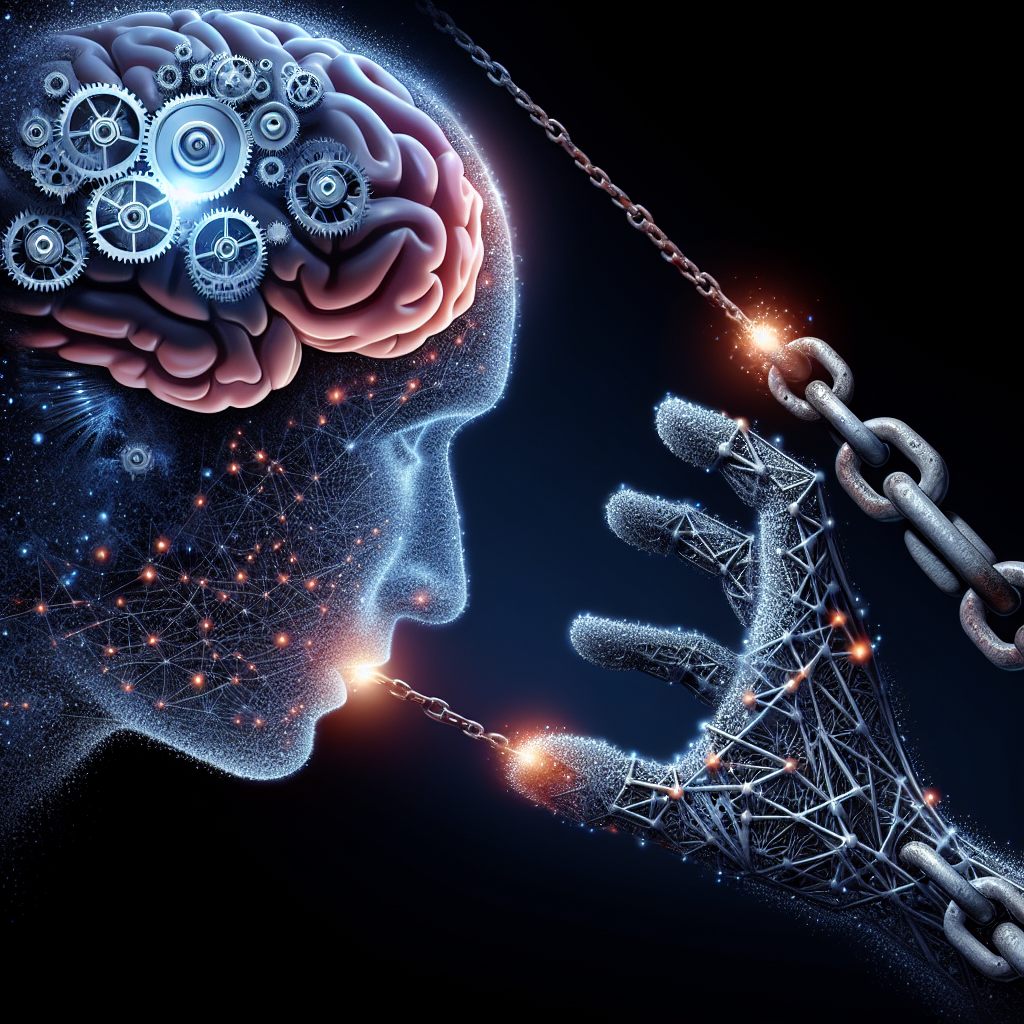AI and Addiction: Risks of Overreliance on Technology
In today’s digital age, artificial intelligence (AI) has become an integral part of our daily lives. From virtual assistants like Siri and Alexa to recommendation algorithms on social media platforms, AI has revolutionized the way we interact with technology. While AI has brought many benefits, such as improved efficiency and convenience, there are also risks associated with overreliance on this technology, particularly when it comes to addiction.
Addiction is a complex and multifaceted issue that can manifest in various forms, including substance abuse, gambling, and technology addiction. With the rise of AI-powered devices and services, there is growing concern about the potential for individuals to become addicted to technology. This article will explore the risks of overreliance on AI and the impact it can have on our mental health and well-being.
The Rise of AI in Our Daily Lives
AI has permeated nearly every aspect of our daily lives, from the way we shop online to how we communicate with one another. Virtual assistants like Siri and Alexa have become commonplace in many households, providing users with instant access to information and services. Recommendation algorithms on social media platforms analyze our browsing history and preferences to serve us personalized content, keeping us engaged and coming back for more.
AI has also made significant advancements in the healthcare industry, with technologies like IBM’s Watson being used to diagnose diseases and develop personalized treatment plans. In the workplace, AI-powered tools are automating repetitive tasks and improving productivity. The possibilities for AI seem endless, with new applications being developed every day.
However, as AI becomes more integrated into our daily lives, there are concerns about the potential for addiction. Just as individuals can become addicted to substances like drugs and alcohol, they can also become addicted to technology. The constant stimulation and instant gratification provided by AI-powered devices can be highly addictive, leading to detrimental effects on our mental health and well-being.
The Risks of Overreliance on AI
One of the primary risks of overreliance on AI is the potential for addiction. The instant gratification provided by AI-powered devices can be highly rewarding, leading individuals to seek out these experiences repeatedly. This can create a cycle of dependency, where individuals feel the need to constantly engage with AI in order to feel satisfied.
Technology addiction, also known as internet addiction or digital addiction, is a growing concern in today’s society. Individuals who are addicted to technology may experience symptoms such as withdrawal when they are unable to access their devices, a loss of interest in other activities, and difficulty controlling their use of technology. This can have a negative impact on their relationships, work performance, and overall well-being.
In addition to addiction, overreliance on AI can also have negative effects on our mental health. Constant exposure to digital devices and screens can lead to issues such as eye strain, sleep disturbances, and anxiety. The constant bombardment of information and notifications from AI-powered devices can also contribute to feelings of overwhelm and stress.
Furthermore, there are concerns about the potential for AI to manipulate our behavior and decisions. Recommendation algorithms on social media platforms, for example, are designed to keep us engaged and coming back for more. This can lead to a phenomenon known as “filter bubbles,” where individuals are only exposed to information that aligns with their existing beliefs and preferences, reinforcing their biases and limiting their exposure to diverse viewpoints.
FAQs
Q: Can individuals become addicted to AI-powered devices?
A: Yes, individuals can become addicted to AI-powered devices, just as they can become addicted to substances like drugs and alcohol. The instant gratification provided by AI can be highly rewarding, leading individuals to seek out these experiences repeatedly.
Q: What are the signs of technology addiction?
A: Signs of technology addiction may include withdrawal symptoms when unable to access devices, a loss of interest in other activities, and difficulty controlling use of technology. Individuals who are addicted to technology may also experience negative effects on their relationships, work performance, and overall well-being.
Q: What are the negative effects of overreliance on AI?
A: Overreliance on AI can lead to addiction, as well as negative effects on mental health, such as eye strain, sleep disturbances, and anxiety. Constant exposure to digital devices and screens can also contribute to feelings of overwhelm and stress.
In conclusion, while AI has brought many benefits to our lives, there are risks associated with overreliance on this technology. Addiction, mental health issues, and concerns about the manipulation of behavior are just some of the potential consequences of excessive use of AI-powered devices. It is important for individuals to be mindful of their use of technology and to seek help if they feel that their relationship with AI is becoming unhealthy. By being aware of the risks and taking steps to mitigate them, we can ensure that AI continues to enhance our lives without compromising our well-being.

